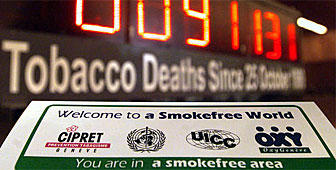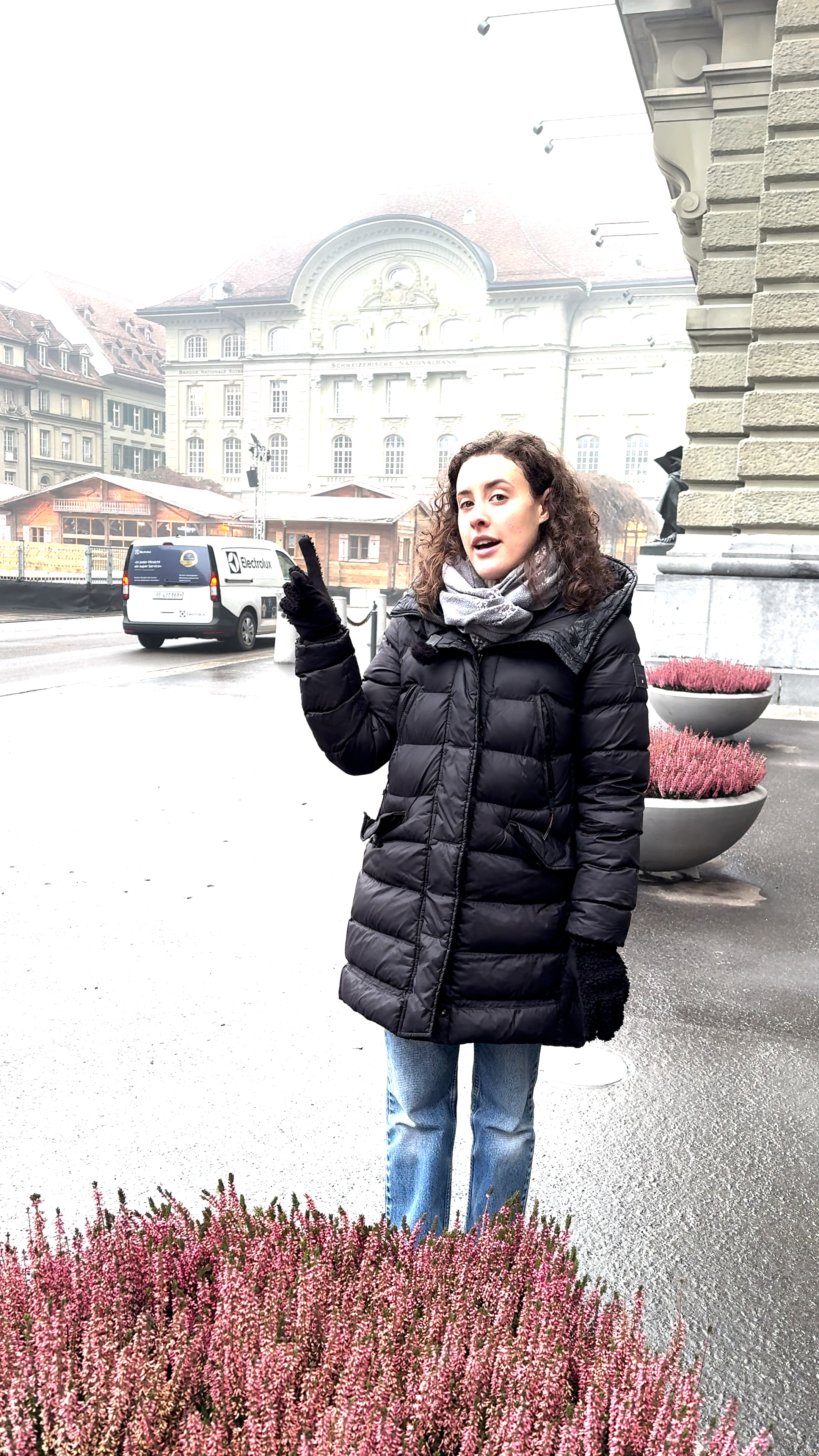
Swiss join efforts to wean world off tobacco

Switzerland was among 190 countries which spent the past week hammering out the first-ever global treaty to curb smoking. The accord, agreed in Geneva, calls for severe restrictions on tobacco advertising and sponsorship.
After five days of negotiations at the World Health Organisation (WHO) headquarters in Geneva, delegates of the 190 member states headed home with the framework text of the agreement to present to their respective governments.
The draft accord puts severe restrictions on tobacco advertising and calls for the gradual elimination of sponsorship of sporting events such as Formula One motor racing.
It also seeks a commitment from governments to bring the international cost of cigarettes into line all over the world, both as a means to deter the young from taking up the habit and to curtail smuggling of tobacco across borders.
The WHO sees the convention as a major step towards international cooperation to help people kick the tobacco habit, which it says kills more than four million people every year.
It predicts that deaths from smoking-related diseases will rise to 10 million a year by 2030, if consumption continues at its present rate.
The WHO hopes that its proposal for a Framework Convention on Tobacco Control (FCTC), launched in Geneva last year, will head off this impending health crisis. But Thomas Zeltner of the Federal Health Office, who represented Switzerland at the meeting, said he had reservations about how effective the treaty would be.
“Within the convention proposal as it is on the table right now, there is a lot of wording to harmonise taxation, to harmonise interventions, and what we fear is that that means harmonisation at a very low level.
“The second element we’re concerned about is which area really has priority when it comes to tobacco products. Is it the freedom of commerce or is it public health? In this particular area there really is a conflict of interest.”
Zeltner is convinced that tougher legislation, along with a ban on advertising, is the best way to cut tobacco consumption.
“I really believe government and legal frameworks offer only a partial way of tackling the problem. Much of the attraction of smoking lies in… fashion, advertising etc. I think in these areas the convention brings support and needs to be translated into legislation.”
The WHO says it would like to see the international treaty on Tobacco Control ratified and in place by 2003. If this happens, there will be an undoubted knock-on affect on the 100 million tobacco workers worldwide who make a living from the crop.
Zeltner was quick to point out that this issue had been considered. “It is definitely clear [that] if we want to reduce tobacco consumption, we will have a reduction in tobacco production and the convention sees a programme for the substitution of tobacco plants in areas where many farmers live from tobacco growth.”
swissinfo with agencies

In compliance with the JTI standards
More: SWI swissinfo.ch certified by the Journalism Trust Initiative






























You can find an overview of ongoing debates with our journalists here . Please join us!
If you want to start a conversation about a topic raised in this article or want to report factual errors, email us at english@swissinfo.ch.